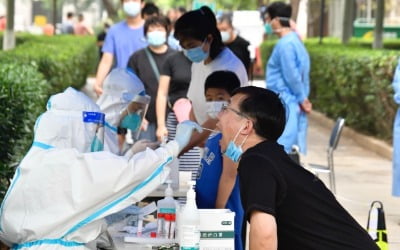[전문] 안철수 "정치인은 다음 선거를, 위대한 정치가는 다음 세대 생각"
-
기사 스크랩
-
공유
-
댓글
-
클린뷰
-
프린트
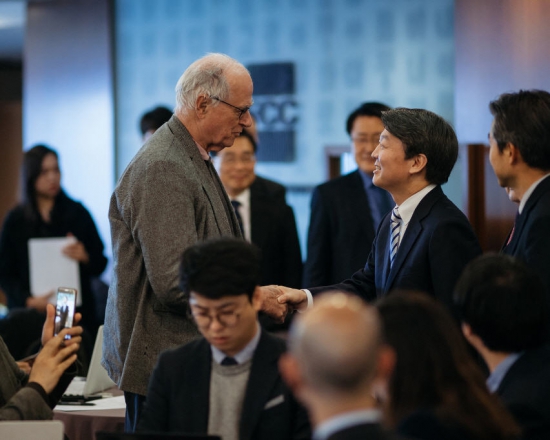
안 전 대표는 이날 오후 서울 태평로 프레스센터에서 열린 외신기자클럽 초청 토론회에 참석해 "대통령에 당선되고 싶다. 궁극적으로 미래세대를 위해 좋은 일을 하는 지도자가 되면 좋겠다"는 뜻을 밝혔다.
이어 "평화로운 한반도를 위해 전쟁위협 제거, 북한 비핵화, 북의 핵.미사일 위협으로부터 대한민국을 방위하는 것, 한반도 평화정착이 필요"하다고 자신의 평화유지 전략을 설명했다.
[ 다음은 외신기자클럽 초청 토론회 기조연설문 전문 ]
<‘평화로운 한반도’를 위한 한국의 전략>
신사, 숙녀 여러분, 안녕하십니까.
오늘 저를 초청해주신 데 대해 서울외신기자클럽의 이창호 회장님과 이사님들께 감사드립니다.
따뜻한 환영을 진심으로 감사드리면서 Q&A 세션에서 여러분의 질문에 최선껏 답변하는 것으로 여러분의 환영에 보답하고 싶습니다.
정치인(politician)과 위대한 정치가(statesman)를 비교하는 여러 표현들이 있습니다만, 저는 다음과 같은 것을 기억합니다.
“당신들이 그의 정치에 동의하지 못하면, 그는 정치인이고, 당신들이 그의 정치에 동의하면 그는 위대한 정치가이다.” 또 “정치인은 다음 선거를 생각하고, 위대한 정치가는 다음 세대를 생각한다”는 것입니다.
저는 물론 오늘 여러분이 저의 정치 <‘평화로운 한반도’를 위한 저의 전략>에 동의해 주시면 좋겠고, 대통령에 당선되고 싶고, 또 궁극적으로 미래세대를 위해 좋은 일을 하는 지도자가 되면 좋겠습니다.
이 모든 것을 마음에 두고, 오늘 어떻게 ‘평화로운 한반도’를 이룩할 것인지에 대한 저의 전략의 개요를 여러분과 함께 나누고자 합니다.
여러분 모두 알고 계시다시피, 지금 대한민국은 전대미문의 국내정치적 위기를 겪고 있습니다.
현재의 위기에는 많은 위협과 위험이 있습니다.
그러나 이 위기는 또한 한국인들에게 민주주의와 삶의 질을 한 단계 향상시킬 수 있는 흔치 않은 기회를 제공해주고 있다고 저는 믿습니다.
우리는 지금 ‘현직 대통령도 이 나라의 법 위에 존재하지 않는다’는 것을 확실히 하는 헌법적 절차를 충실히 진행해 나가고 있습니다.
그리고 우리 자신들과 후손들을 위해 정의롭고 공정한 사회를 만들기 위해 광장과 거리에 나와 투쟁하고 있습니다.
참으로 놀랍고 특별히 자랑스러운 것은 이 모든 것이 비폭력적인 방법으로 이뤄지고 있다는 것입니다.
이것은 우리 한국 사람들로서도 여태껏 가본 적이 없는 길입니다.
서울시내와 전국을 통해 거의 1,500만 명이나 되는 사람들이 촛불시위에 참가했는데도, 지금까지 한 건의 심각한 폭력사고도 없었습니다.
저는 이번 일로 우리나라 사람들이 마땅히 칭찬받아야 한다고 생각합니다.
그러나 우리의 정치적 위기는 현재 우리가 겪고 있는 유일한 위기가 아닙니다.
우리가 직면하고 있는 마찬가지, 아니 훨씬 더 심각한 위기는 북한의 핵·미사일 위협 등 전쟁위협이며, 이는 우리민족의 생존과 번영에 대한 명백한 위험입니다.
그렇다면 우리는 어떻게 이러한 긴장을 완화하고 전쟁위협을 제거하며 한반도에 평화를 가져올 수 있을까요?
이것이 오늘 여러분과 제가 나눌 이야기의 주제입니다.
저는 외교, 안보, 남북관계 분야에서 추구하는 다섯 가지 정책목표와 그것들을 성취하기 위한 세 가지 전략을 말씀드리고자 합니다.
그럼 정책목표부터 이야기 해 보겠습니다.
첫째, 우리는 긴장을 과감하게 감소시키고 한반도 위를 배회하는 전쟁위협을 제거하겠습니다.
최근 북한의 핵·미사일 위협의 악화, 남북 간 국지전 가능성 등으로 인해 전쟁위협이 눈에 띄게 증가했습니다.
이러한 상황이 결코 지속되어서는 안 됩니다.
저는 다시 한 번 강조하고자 합니다.
저는 평화적으로 한반도에서 전쟁위협을 제거하기 위해 최선을 다 할 것입니다.
둘째, 우리는 북한을 비핵화시키기 위한 노력을 결코 포기하지 않을 것입니다.
우리의 안보위협을 줄이고, 이 나라를 핵무기 없는 땅으로 만들고, 동북아시아 평화와 번영을 확보하기 위해서 우리는 늦기 전에 필요한 임시 중간조치들을 취해야 합니다.
특히, 6자회담의 재개를 통해 협상장에 복귀하여, 북한의 핵무기와 핵무기 프로그램을 동결하고, 핵실험을 유예하며, 북한의 핵 원자로 관련 지역에 다시 감찰관을 파견하고 감시 카메라를 다시 설치해야 합니다.
셋째, 우리는 북한의 핵·미사일 위협을 억제하고 대한민국을 확실히 방위할 것입니다.
강조컨대, 여기에는 어떤 타협도 없습니다.
북한은 일련의 실험들을 통해 핵과 미사일 능력을 강화해 왔습니다.
작년에는 핵실험을 두 번이나 했고, 잠수함발사탄도미사일 발사실험을 했습니다.
올해 들어서는 김정은이 신년사에서 북한이 ICBM 로켓발사 준비의 마지막 단계에 접어들었다고 말했습니다.
가장 최근에는 또 다른 새로운 타입의 중거리탄도미사일을 시험발사했습니다.
북한의 핵·미사일 위협에 대처하기 위해 우리는 킬 체인(Kill Chain)과 한국형미사일방어체제(KAMD)의 조기 개발과 배치에 속도를 낼 것입니다.
넷째, 우리는 한반도 평화정착을 위해 우리가 할 수 있는 모든 것을 다 할 것입니다.
우리나라는 냉전의 희생양이 되어 분단된 상태로 지금까지 남아있는 세계 유일 국가입니다.
이제는 그동안 60년 이상을 지속해온 전쟁을 종식하고 정전체제를 영구적인 평화체제로 전환해야 할 때입니다.
이를 위해 저는 남북한과 미국, 중국이 참여하는 4자회담을 새롭게 재개해야 할 필요가 있음을 강조합니다.
지금은 거의 잊혀져 있습니다만, 1996년 4월 제주도에서 한국의 김영삼 대통령과 미국의 빌 클린턴 대통령이 주도적으로 4자회담을 제의했고, 4자회담은 1996년부터 1999년까지 개최됐습니다.
당시 4자회담의 목표는 한 마디로 한반도 긴장완화와 영구적인 평화체제 수립이었습니다.
여기에 더하여, 6자회담은 2005년 9.19공동성명에서 한반도에서 영구적인 평화체제 수립의 필요성을 재확인했습니다.
공동성명 제4조는 다음과 같이 되어 있습니다.
“6자는 동북아시아에서 항구적인 평화와 안정을 이룩하기 위하여 공동으로 노력할 것을 공약했다. 직접 당사국들은 적절한 별개의 포럼에서 한반도의 항구적인 평화체제를 협상할 것이다.”
다섯째, 우리는 민족화해와 한반도 통일을 ‘평화로운 과정’으로 추구해 나갈 것입니다.
우리는 현재 북한을 제재하는 국면에 있습니다.
그러나 수십 년간의 미소관계, 남북한관계 등을 되돌아보면, 경험상 제재만으로는 우리가 원하는 결과를 얻을 수 없었습니다.
그렇기 때문에 우리는 제재가 ‘목적’ 자체가 되어서는 안 되고, 우리가 정책목표를 달성하는 ‘수단’이라는 것을 잊지 말아야 할 것입니다.
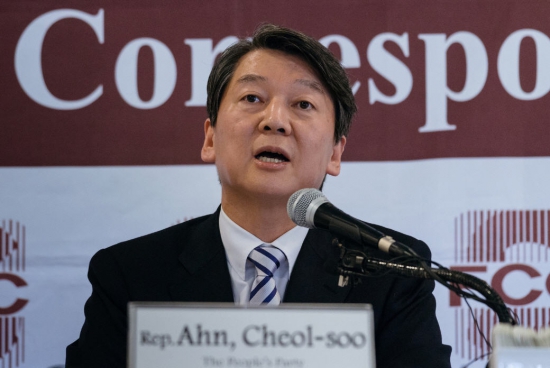
우리는 지속적으로 대북 유엔안보리 제재결의를 존중해 나갈 것입니다.
그러나 우리는 우리가 처한 심각한 문제들을 해결하기 위해서는 북한과의 대화를 포함하여 다른 여러 방법을 고려해야 한다는 것을 또한 알고 있습니다.
이상에서 ‘평화로운 한반도’를 이뤄내기 위한 우리의 다섯 가지 정책목표들을 말씀드렸습니다만, 여러분은 그러한 목표들을 성취할 수 있는 전략이 무엇인지 질문하실 것으로 봅니다.
우리에게는 세 가지 전략이 있습니다.
첫째, 우리는 우리 방위의 핵심기둥인 한미동맹을 강화하고, 외부위협과 싸우는 능력을 확보하기 위해 “자강안보”를 추구할 것입니다.
이를 위해 우리는 특히 공군력과 해군력을 현대화하여 첨단군사력을 보유할 것입니다.
이러한 현대화를 위해 우리는 국방예산을 점진적으로 GDP의 3% 수준까지 증액시킬 수 있을 것입니다.
저는 방위산업 부패를 근절하고, 군수품 조달 부패는 반드시 처벌할 것입니다.
둘째, 우리는 남북관계 개선, 비핵화, 평화체제 수립이라는 세 가지 상호 연결된 정책목표들 간에 악순환이 아닌 선순환의 고리를 만들어 낼 수 있도록 할 것입니다.
그리고 관련국들이 대화를 재개하도록, 즉 남북대화뿐만 아니라 6자회담, 4자회담 그리고 북미대화를 재개할 수 있는 기회를 만들어내기 위해 보다 능동적으로 노력할 것입니다.
그렇게 함으로써, 긴장과 전쟁위협이 진정되고, 우리가 고투하고 있는 주요문제들을 해결하기 위한 단기 및 중장기 해결책들을 찾아낼 수 있을 것입니다.
마지막으로, 우리는 우리의 국익, 다른 나라들과의 관계, 정책목표와 정책수단을 다루는 데서 평화주도적이고, 통일증진적이며, 호혜적인 외교를 추구해 나갈 것입니다.
우리는 앞으로도 계속하여 조화롭고 비(非)제로섬 방식으로 한미 동맹 협력과 한중 전략적 협력동반자 관계를 강화해 나갈 것입니다.
이렇게 여러분을 만나볼 수 있는 기회를 주신 데 대해 다시 한 번 감사드립니다.
여러분 모두 건강하시고 한국에서의 체류가 즐겁고 보람 있기를 바랍니다.
이제 저는 흥미로운 Q&A 세션을 기대하며, 약속드린 바와 같이 여러분의 질문에 좋은 답변을 하기 위해 최선을 다하겠습니다.
고맙습니다.
Good afternoon, ladies and gentlemen. Thank you very much, President Lee Chang Ho and board members of The Seoul Foreign Correspondents’ Club for inviting me to this afternoon’s event. I do appreciate your warm welcome, and I’d like to reciprocate by doing the best I can in answering your questions in the Q&A session to follow.
There are many quotes that compare politicians and statesmen. And I remember these: "A politician is a person whose politics you don’t agree with; if you agree with him, he is a statesman.” and “A politician thinks of the next electiona statesman of the next generation.”
I, of course, am interested in having you agree with my politics--my strategies for a peaceful Korean Peninsula, in getting elected President, and in ultimately becoming a leader who cares about the next and future generations to come. With all these in mind, I’d like to share with you the outline of my strategies on bringing peace to the Korean Peninsula.
As you are aware, my country is in an unprecedented domestic political crisis. There are many threats and dangers in this crisis, but I believe it also provides a rare opportunity for improved democracy and quality of life for Koreans. We are faithfully following the constitutional procedure under which even a sitting President is not above the law of the land, and we nationwide have gathered in plazas and taken to the streets to ensure a just and fair society for ourselves and future generations.
What is truly amazing and what we take special pride in, is that everything is taking place in a nonviolent way, a road not taken by us until now. Almost as many as fifteen million Koreans have participated in candlelight vigils in downtown Seoul and across the country, but there has not been a single reported case of serious violence. I think Koreans deserve credit for this.
But the political crisis we are experiencing is not the only crisis we currently face. Just as or even more serious in character and magnitude is the threat of war in Korea, including North Korean nuclear and missile threats, which are an apparent danger to our survival and prosperity.
How exactly do we reduce tension, remove the threat of war, and bring peace to this peninsula? This is the subject of my conversation with you today.
I would like to present five policy goals and three strategies in the areas of foreign and security affairs and interKorean relations. Let us start with policy goals.
First, we will drastically lower tensions and remove the threat of war hovering over the Korean Peninsula. Due to aggravated North Korean nuclear and missile problems, potential outbreak of local wars between the two Koreas, etc., the threat of war has noticeably increased in recent years. The current climate cannot go on. I want to emphasize again: I will do my best to reduce and remove war threat on the Korean Peninsula, peacefully.
Second, we will never give up our efforts to denuclearize North Korea. To reduce security threats, make this land nuclear weaponsfree, and secure peace and stability in Northeast Asia, we will have to take necessary interim measures before it is too late. Specifically, we will have to resume the SixParty Talks and return to a negotiating table: to freeze the North Korean nuclear weapons and weapons programs, put a moratorium on nuclear weapons testing, and put inspectors and monitoring cameras back in place at the nuclear reactor sites in North Korea.
Third, we will deter North Korean nuclear and ballistic missile threats and defend our country, the Republic of Korea. There cannot be any compromise here.
North Korea has strengthened its nuclear and missile capabilities by conducting a series of tests. Last year, North Korea conducted nuclear tests twice, and testfired submarinelaunched ballistic missiles (SLBMs). This year, Kim Jong Un hinted that they were in the “last stage preparation of tests for intercontinental ballistic rocket launch” in his New Year’s Day Address. And most recently, North Korea testlaunched a new type of an Intermediate Range Ballistic Missile (IRBM). To counter these threats, we will speed up the early development and deployment of a Kill Chain and Korea Air and Missile Defense (KAMD).
Fourth, we will do all we can to bring peace in the Korean Peninsula. Korea is the only country in the world that was divided, victim to the Cold War, and still remains so. We need to end the ongoing war in Korea that has lasted more than 60 years, and transform the Korean armistice into a permanent peace regime.
To that end, I would like to emphasize the need to start a new round of the FourParty Talks, involving the two Koreas, the U.S. and China. It is almost forgotten, but the FourParty Talks were opened in 19961999 by the joint initiation of the South Korean President Kim Youngsam and U.S. President Bill Clinton at Jeju Island in April 1996. The single most important purpose of the FourParty Talks was to reduce tension and establish a permanent peace regime in Korea.
In addition, in 2005, the SixParty Talks reconfirmed the need to establish a permanent peace regime on the Korean Peninsula in its wellpublicized September 19th Joint Statement. The Article 4 of the Joint Statement reads: "The Six Parties committed to joint efforts for lasting peace and stability in Northeast Asia. The directly related parties will negotiate a permanent peace regime on the Korean Peninsula at an appropriate separate forum."
Fifth, and finally, we will promote national reconciliation and pursue unification of the Korean nation as a peaceful process. We are currently in a phase of applying sanctions to North Korea. Empirically speaking, however, sanctions alone have not produced the results we wanted, if we reflect on decades of experience with U.S.Soviet relations, SouthNorth Korean relations, and other experiences.
Therefore, we must keep in mind that sanctions should not be objectives per se but only instruments to achieve our goals. Sanctions are basically an instrument to change and forge conditions for the other side to come to the negotiating table. We will continue to respect the United Nations Security Council's sanctions, but we also know that we must look elsewhere as well--including talks with North Korea--to find solutions to the dire problems we have.
Now that we have stated our goals for a peaceful Korean Peninsula, you may want to ask what our strategies are to achieve them. We have three key strategies.
First, we will strengthen KoreaU.S. alliance cooperation, the main pillar of our defense, and pursue “selfstrengthened security” to secure our own capabilities in fighting outside threats. To this end, we will become a hightech military power by modernizing our air force and navy, in particular. For such modernization, we may need to gradually increase our defense budget up to 3 per cent of our GDP. I will resolutely eradicate corruption in the defense industry and make sure military procurement corruptions never go unpunished.
Second, we will seek a strategy that results in a virtuous cycle, not a vicious cycle, among the three interconnected policy goals--improved interKorean relations, denuclearization, and establishment of a peace regime. We will make proactive efforts to seek and create opportunities to resume dialogue among the parties involvedthe SixParty Talks, the FourParty Talks, and U.S.North Korea talks, as well as interKorean talks. This will defuse tension and war threat, and help find short, medium, and longterm solutions to the key problems we are struggling with.
Lastly, we will pursue a peaceinitiating, unificationpromoting, and mutuallybenefiting diplomacy when dealing with our national interests, our relations with other countries, and our policy goals and instruments. We will continue to strengthen both our alliance cooperation with the U.S. and our strategic cooperative partnership with China in a harmonious, nonzero sum manner.
Thank you very much again for this opportunity to meet with you. I wish you well, and a pleasant and rewarding stay in Korea.
Now I am looking forward to an exciting time ahead, the Q&A session, and as I promised, I will do my best to answer your questions. Thank you.
이미나 한경닷컴 기자 helper@hankyung.com
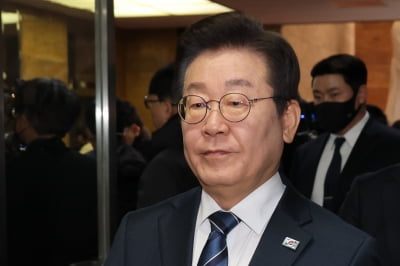
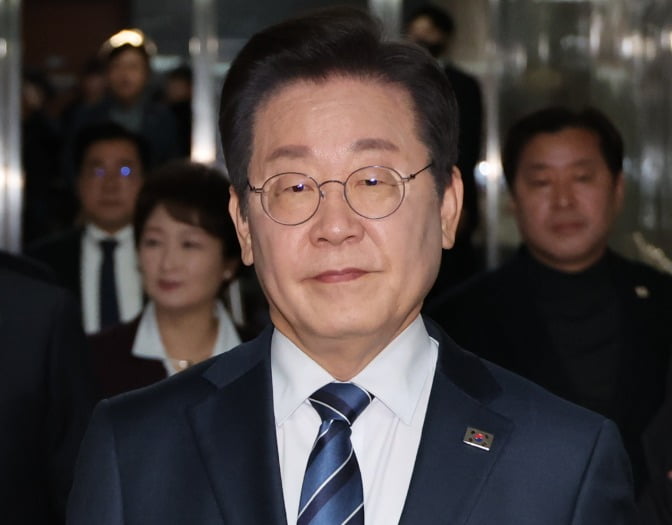
!['전세 10년 보장법' 논란 커지자…사태 진화 나선 이재명 [이슈+]](https://img.hankyung.com/photo/202503/ZN.39837843.3.jpg)

![K팝 업계에도 '친환경' 바람…폐기물 되는 앨범은 '골칫거리' [연계소문]](https://img.hankyung.com/photo/202206/99.27464274.3.jpg)
